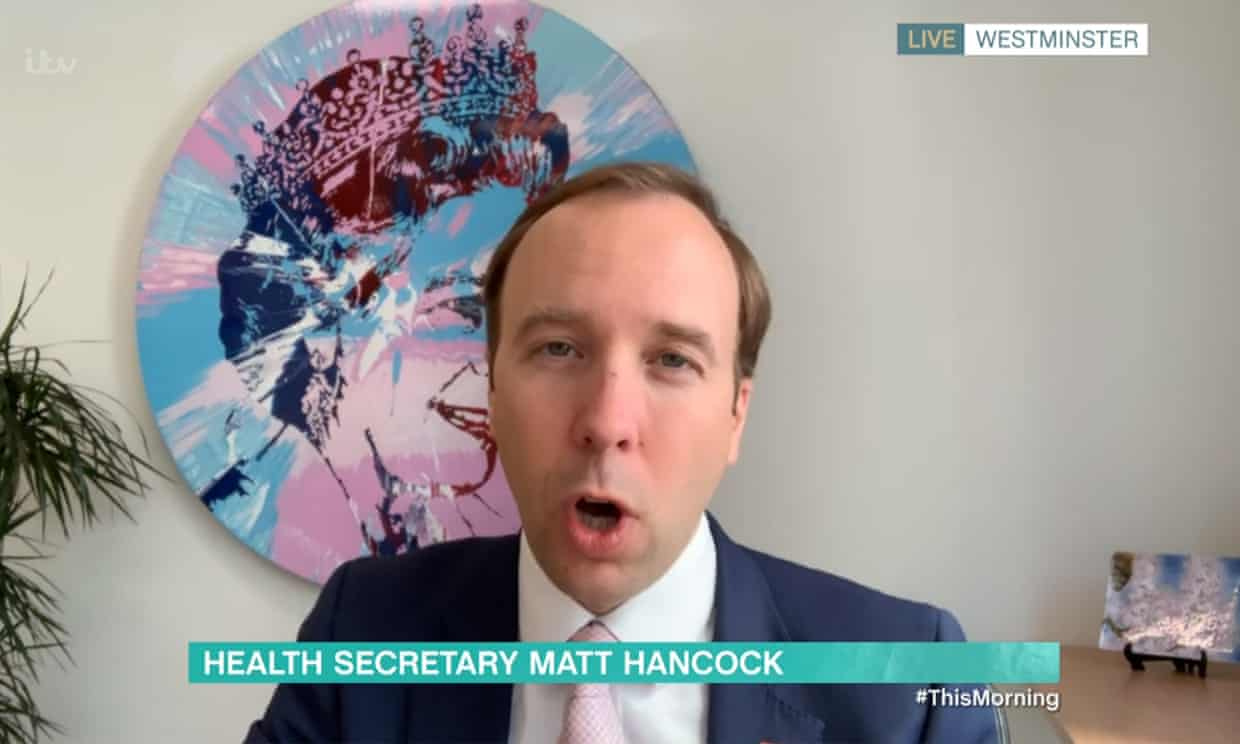
NHS
Matt Hancock's obsession with hospitals has warped priorities and cost lives
The government’s chaotic approach has been to treat the sickness rather than stop the spread of the virus
by Richard VizeMatt Hancock’s at it again. The health and social care secretary’s appearance at the 5pm briefing on Wednesday to finally announce the test and trace system in England showcased the flaws that have undermined the effectiveness of the entire coronavirus response: seeing everything through the lens of the NHS, marginalising and ignoring local government, and throwing money at private companies to fill the gaps left by public sector cuts.
The “NHS track and trace system” largely consists of thousands of people working in Serco call centres, for which the training has been so haphazard that the company’s chief executive has issued a video apology. Painting NHS lipstick on it is supposed to give people confidence it will work. Unheralded, much of the work will fall to local government public health teams.
And yet again Hancock delivered a calculated snub to councils, refusing to acknowledge their contribution in a thank-you lis that included businesses.
Hancock knows all about shielding the vulnerable: he has been using the NHS as his personal human shield from the start. Setting himself up as the champion of the health service, the “protect the NHS” mantra quickly became pivotal to his entire approach to the pandemic. This warped priorities and cost lives, as the government initially decided to treat the sickness rather than prevent the illness.
While countries from Greece to Senegal moved quickly to keep people safe by breaking transmission of the virus, Hancock thought the answer was to mobilise the vast resources of the NHS to treat an avoidable flood of seriously ill patients. Instead of pursuing a policy of tracing infection contacts – albeit with limited testing capacity – Hancock decided it was better to build lots of respirators.
Hospital staff were elevated to cult status as they worked with inadequate safety equipment. In hospital loading bays, refrigerated lorries were plugged in as mortuaries overflowed.
At a national level, thinking about health and care as a system with the patient at its centre was jettisoned as the obsession with preparing hospitals to treat vast numbers of infected patients took hold. A hospital director in London told the Health Service Journal he was “on the verge of screaming” at people to get patients back into the community. Thousands of patients were cleared out of hospital beds, taking the virus into care homes and leaving threadbare social services to provide support.
Under pressure the NHS reverted to exactly the habit it has been trying to break: throwing resources at hospitals at the expense of the rest of the healthcare system.
Cancelling cancer treatment was seen as an acceptable price for increasing capacity and trying to keep the number of virus deaths down. In the government public relations game, some deaths matter more than others.
Meanwhile public health teams in councils were also on the verge of screaming with frustration, this time at the failure by Hancock and housing, communities and local government secretary Robert Jenrick, to put them up at the heart of the pandemic response and keep people safe from infection.
It is staggeringly stupid that Hancock and Jenrick have continued to pursue an ideological vendetta against local government in the face of such a public health emergency. While money without limit was thrown at building Nightingale hospitals where thousands of beds remained empty and private firms were being hired in a chaotic ramping up of testing capacity which marginalised NHS labs and wasted time, Jenrick tried to backtrack on a commitment to cover councils’ pandemic spending.
Finally, faced with a much-hyped tracing app which didn’t work, poorly trained contact staff and the sight of much of Europe easing lockdown restrictions, Hancock and co have come crawling back to local government.
Public health teams are experts at contact tracing. Their profession has been doing it for centuries – somewhat longer than Serco. But only now is their expertise being mobilised.
This pandemic has been an extreme demonstration of why healthcare needs to think and work as a collaborative local system across the NHS and local government, with prevention and early intervention at its heart, instead of relying on hospitals to fix us once we are sick. More than 50,000 lost lives are testament to the limits of hospital care.